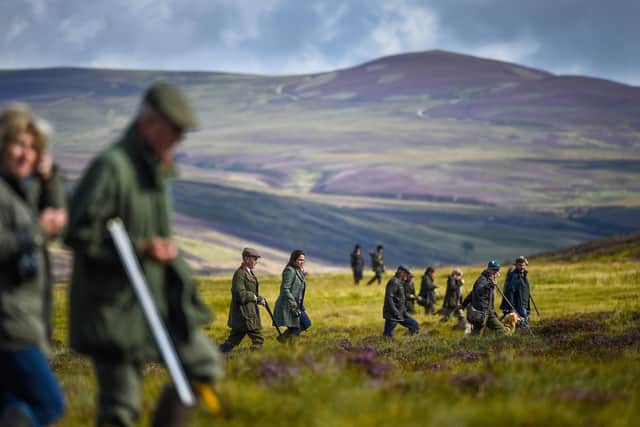We must make our aim to end climate crisis - Erica Mason
This article contains affiliate links. We may earn a small commission on items purchased through this article, but that does not affect our editorial judgement.


These are big accomplishments, of which Scotland can be proud. But this is just the tip of the iceberg. We are facing a global crisis for biodiversity. The 2019 State of Nature report showed that one in nine species in Scotland are at risk of extinction and that biodiversity has been steadily and consistently declining for the last 30 years, with little sign of improvement. And the biggest drivers of this decline: climate change, agriculture and land use practices, invasive non-native species, pollution and fisheries, have not been sufficiently addressed. Public sector funding for nature as a percentage of GDP has fallen and we have seen the devastating effects of the pandemic and resulting lockdown take its toll on people’s mental and physical health. The wins are big, but they need to be bigger.
There are actions we know we can take right now. RSPB Scotland, WWF Scotland and the Scottish Wildlife Trust have identified 11 actions that the Scottish government can take now to put us on a path toward nature’s recovery. These 11 actions are a route map for tackling the nature and climate crises, but can also help us consider a new way forward after a year of upheaval and tragedy. From managing deer populations to preventing the spread of invasive non-native species and changing the way we use harmful chemicals like nitrogen, the actions are targeted and achievable.
Advertisement
Hide AdAdvertisement
Hide AdIn addition, at least five of the actions can significantly contribute to a green recovery, creating jobs and supporting the economy, and mostly in rural areas. These actions, like expanding Scotland’s native woodland and supporting climate and nature friendly farming, are investments in nature that help tackle existing problems, ready us for future crises and create the conditions under which biodiversity can thrive. Delivering on these actions would help bring a more healthy and resilient nation, supporting diverse, vibrant communities and economies.


The 11 actions are not revolutionary, yet they can have revolutionary effects. For example, by implementing a Scottish Nature Network and thinking about how we plan developments in our urban and rural areas, we increase the space for biodiversity and create more access to nature for ourselves. In a year where nature has become vital to people’s mental and physical health, undertaking this action is not only crucial, it’s lifechanging. The same is true of working with fishermen to achieve sustainable and low-impact fishing. When we take action for nature, we take action for ourselves.
January is a chance for a fresh start, a chance to turn around what has come before and to make transformational change. We know that we must urgently act to save nature and end the climate crisis and we need our leaders to commit to take this action. One way that leaders can demonstrate this commitment to nature is by committing to the 11 Actions.
But, like most New Year’s resolutions, these commitments will only have value if they are realised. Ten years ago, countries created a ten-year plan with 20 targets to conserve and protect nature. Nowhere on the planet have these targets been fully met. But we’re in a new year and we have a chance to turn it around- and we must take it.To find out more about the Nature Recovery Plan, please go to https://www.rspb.org.uk/globalassets/downloads/nature-recovery-plan---scotland/nature-recovery-plan.pdf
Erica Mason, Policy Officer, RSPB Scotland
Comments
Want to join the conversation? Please or to comment on this article.